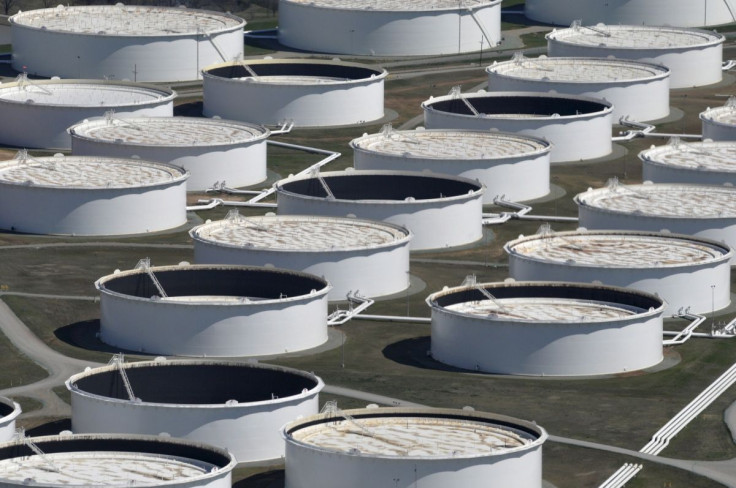Oil Tops $105 After Russia Attacks Ukraine

Oil prices jumped on Thursday, with Brent rising above $105 a barrel for the first time since 2014, after Russia's attack on Ukraine exacerbated concerns about disruptions to global energy supply.
Russia launched an all-out invasion of Ukraine by land, air and sea in the biggest attack by one state against another in Europe since World War Two.
The United States and Europe have promised the toughest sanctions on Russia in response.
"If sanctions affect payment transactions, Russian banks and possibly also the insurance that covers Russian oil and gas deliveries, supply outages cannot be excluded," Commerzbank analyst Carsten Fritsch said.
At least three major buyers of Russian oil were unable to open letters of credit from Western banks to cover purchases on Thursday, sources told Reuters.
Global benchmark Brent crude rose $7.00, or 7.2%, to $103.84 a barrel by 11:39 a.m. ET (1639 GMT), after touching a high of $105.79.
U.S. West Texas Intermediate (WTI) crude jumped $4.95, or 5.4%, to $97.05 a barrel, after earlier rising to $100.54.
Brent and WTI hit their highest since August and July 2014 respectively.
"Russia is the third-largest oil producer and second-largest oil exporter. Given low inventories and dwindling spare capacity, the oil market cannot afford large supply disruptions," UBS analyst Giovanni Staunovo said.
"Supply concerns may also spur oil stockpiling activity, which supports prices."
Russia is also the largest provider of natural gas to Europe, providing about 35% of its supply.
UK Prime Minister Boris Johnson said Britain and its allies would unleash a massive package of economic sanctions on Russia and that the West must end its reliance on Russian oil and gas.
China warned of the impact of tensions on the stability of the energy market.
"All countries that are truly responsible should take responsible actions to jointly maintain global energy security," a Chinese foreign ministry spokesperson said.
In the United States, commercial crude inventories rose 4.5 million barrels last week to 416 million barrels, much more than analysts' expectations in a Reuters poll for a 400,000-barrel build. [EIA/S]
However, crude in the U.S. Strategic Petroleum Reserve fell 2.4 million barrels to 582.4 million barrels, its lowest since 2002, government data showed.
Globally, oil supplies remain tight as demand recovers from pandemic lows.
Reflecting the tightness, the premium on Brent contracts for loading in one month over contracts for loadings in six months, a metric closely watched by traders, hit a record high at $11.55 a barrel.
Analysts say Brent is likely to remain above $100 a barrel until significant alternative supplies become available from U.S. shale or Iran, for example.
The United States and Iran have been engaged in indirect nuclear talks in Vienna that could lead to the removal of sanctions on Iranian oil sales.
Iran's top security official Ali Shamkhani said on Twitter that it is possible to achieve a good nuclear agreement with Western powers after significant progress in negotiations.
Analysts are warning of inflationary pressure on the global economy from $100 oil, especially for Asia, which imports most of its energy needs.
"Asia's Achilles heel remains its vast import needs for energy, with surging oil prices bound to take a hefty bite out of income and growth over the coming year," said HSBC economist Frederic Neumann.
© Copyright Thomson Reuters 2024. All rights reserved.





















